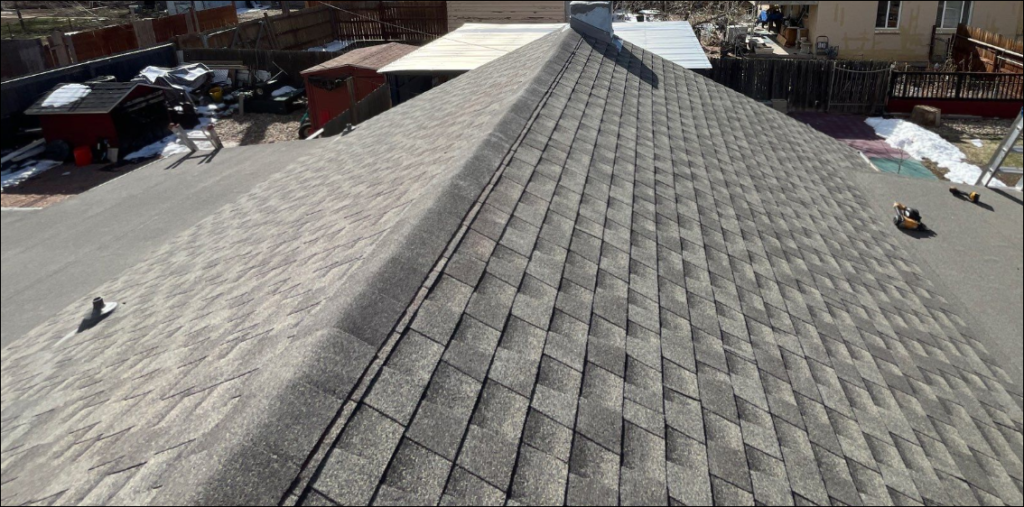Understanding Roofing Underlayments
Roofing underlayments are critical components of any Denver roofing system. They serve as the second line of defense against water infiltration, providing added protection beneath the primary roofing material. There are several types of roofing underlayments, each designed to meet specific needs and conditions. This guide will delve into the various types, their benefits, and why choosing the right underlayment is essential for the longevity and performance of your roof.
Types of Roofing Underlayments
Asphalt-Saturated Felt
Asphalt-saturated felt is one of the oldest and most common types of roofing underlayments. It is made from a blend of asphalt, polyester, and natural plant fibers, offering excellent water resistance and durability.
Benefits of Asphalt-Saturated Felt:
- Water Resistance: Provides a reliable barrier against water seepage.
- Affordability: Generally less expensive than other underlayment options.
- Easy Installation: This can be easily applied to most roofing structures.
Synthetic Underlayments
Synthetic underlayments are a more recent innovation, offering enhanced performance over traditional felt. They are made from polypropylene or polyethylene, making them lighter and more durable.
Benefits of Synthetic Underlayments:
- Superior Durability: Resistant to tearing, making them ideal for high-traffic areas.
- Enhanced Water Resistance: Offers better protection against water infiltration compared to felt.
- UV Resistance: Can withstand prolonged exposure to sunlight without degrading.
Rubberized Asphalt Underlayments
Rubberized asphalt underlayments provide the highest level of water resistance and are often used in areas prone to heavy rainfall or ice dams. They feature a self-adhesive backing for easy installation and superior adhesion.
Benefits of Rubberized Asphalt Underlayments:
- Maximum Water Resistance: Impervious to water, making them ideal for extreme weather conditions.
- Self-Sealing Properties: Nail holes seal automatically, preventing water penetration.
- High-Temperature Tolerance: Can withstand extreme temperatures without compromising performance.
Choosing the Right Underlayment for Your Roof
Selecting the appropriate underlayment for your roof depends on several factors, including the climate, roofing material, and specific needs of your home. Here are some considerations to keep in mind:
Climate Considerations
In regions with heavy rainfall or snow, synthetic or rubberized asphalt underlayments are recommended due to their superior water resistance. For areas with moderate weather conditions, asphalt-saturated felt may suffice.
Roofing Material Compatibility
The type of roofing material you choose will also influence your underlayment selection. For instance, metal roofs often benefit from synthetic underlayments due to their durability and tear resistance. Asphalt shingles, on the other hand, can be paired with either felt or synthetic underlayments depending on the desired level of protection.
Installation and Cost
Consider the installation process and overall cost when selecting your underlayment. Synthetic underlayments, while more expensive, offer easier installation and longer lifespan, potentially reducing long-term maintenance costs.
The Importance of Professional Installation
Proper installation of roofing underlayments is crucial for ensuring their effectiveness. Professional Denver roofers, such as those at Tried and True Roofing, possess the expertise and experience necessary to install underlayments correctly, ensuring optimal protection for your home.
Ensuring Longevity and Performance
Professional installation guarantees that the underlayment is applied without gaps or overlaps, which can compromise its water resistance. Moreover, experienced roofers understand the specific requirements of different underlayment types, ensuring that they are installed according to manufacturer specifications.
Protecting Your Investment
Investing in high-quality underlayment and professional installation protects your roof from water damage, extending its lifespan and safeguarding your home. Tried and True Roofing provides top-notch installation services, ensuring that your roofing system performs optimally for years to come.
Conclusion
Roofing underlayments are a vital component of any roofing Denver system, providing an essential barrier against water infiltration and enhancing the durability of your roof. Whether you choose asphalt-saturated felt, synthetic, or rubberized asphalt underlayments, selecting the right type and ensuring professional installation is key to maximizing the performance and longevity of your roof. For expert advice and installation services, consider the professionals at Tried and True Roofing, your trusted partner in roofing solutions.


